The harrowing tale of Patriots player Calvin Anderson’s near-fatal bout with malaria
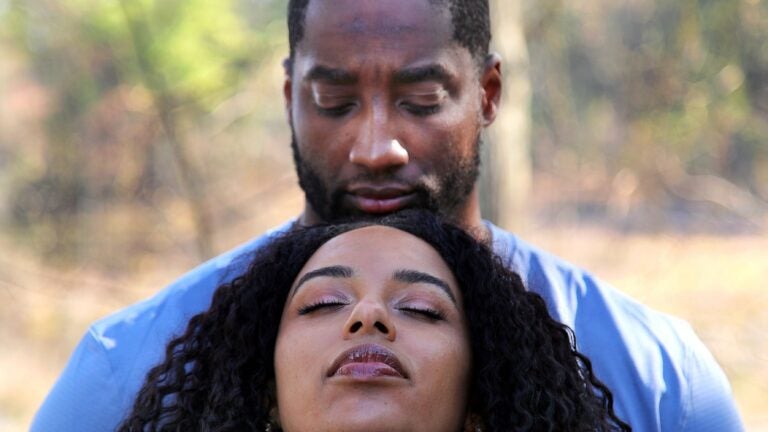
Fifty-fifty.
The words rang in Sherée Lanihun-Anderson’s ears. Those were the odds the doctors gave her husband, Patriots offensive lineman Calvin Anderson, of survival.
Training camp was set to start in three days. Anderson, who had signed with New England as a free agent in the spring, was supposed to help shore up the offensive tackle position. In 72 hours, he was expected to be on the practice field, going through drills in Foxborough.
Instead, Anderson was laid out in the emergency room at Newton-Wellesley Hospital with a 105-degree fever and 50-50 odds on whether he was going to live or die.
The morning of July 22, 2023 marked the start of a harrowing journey for Anderson, one that began in the days after a trip to Africa and included a hospital stay, a brief return to the field, another scare a few months later that forced him to the sideline, and mental health concerns that stemmed from guilt as he watched the Patriots struggle to a 4-13 finish.
Now, fully cleared for a return and looking stronger than ever, the 6-foot-5-inch, 305-pound Anderson is attempting to do something no player in the history of the NFL has ever done — return from a near-fatal bout with malaria to play a full season at a high level.
“I know that Calvin has had a long road to recovery and I am eager to see him return to the field and compete this year,” Patriots coach Jerod Mayo said.
His friends and family joke about the 28-year-old Anderson being the early favorite for Comeback Player of the Year.
“If I were to win Comeback Player of the Year, it would come with a lot of good play … which is why I’m in the gym getting crazy-big right now,” he said with a laugh. “Don’t let that get lost, either.
“But if I were to win Comeback Player of the Year, it wouldn’t be about me, but about how God brought me back from this.’’
He also is aware of the debt of gratitude he owes to his wife, Sherée. If she hadn’t insisted on a hospital visit that morning, who knows what would have happened?
“I trust her with my life, and in this case, it was a good example of why that’s important,” Anderson said. “If left to my own devices, I might have decided to not prioritize my health in that moment. As football players, a lot of times we end up prioritizing a lot of things ahead of our health so we can continue to play.
“But this was a case when I had someone in my corner who made a judgment call and had to veto me a little bit there. It ended up saving my life.”
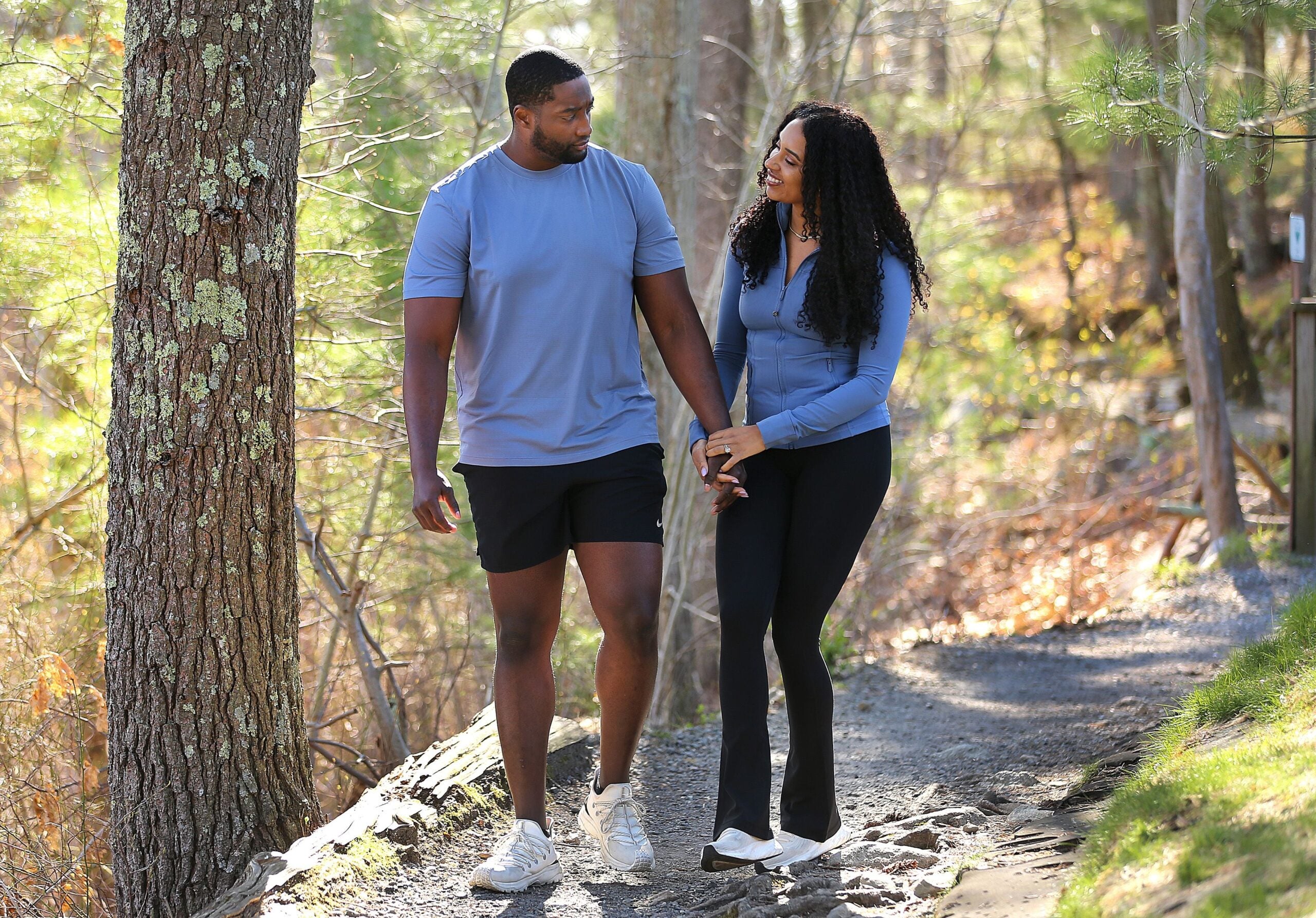
Circling back
A heady offensive lineman who went undrafted out of Rice, Anderson made an early claim to fame with an almost eerie proficiency with the Rubik’s Cube. He majored in mathematical economic analysis in college, and he can solve the Cube behind his back using a complex mathematical formula.
On the field, Anderson carved out a niche as a smart, versatile, and cost-effective lineman capable of playing in multiple systems. He bounced around at the start of his career, signing with the Patriots as a rookie free agent in 2019. He was quickly poached by the Jets, then added to the Broncos’ 53-man roster, playing left and right tackle in Denver for three seasons.
He made his name as a dependable presence who could play on either end of the line, and his snaps grew from 132 in 2020 to 439 in 2022. In 2022, he made seven starts at left tackle for the Broncos, allowed just two sacks, and wasn’t flagged for a holding penalty all year.
While playing for the Broncos, he met Sherée Lanihun, and the two connected instantly. Anderson soon laid his cards on the table, explaining that he was an “all-in or all-out type of guy,” and they were destined to be together.
“I didn’t know someone with so much persistence and conviction existed,” Sherée recalled. “I felt relieved. I had never felt like I had found my person. And here he was. My person.”
Last spring brought his first real opportunity in free agency, and he was the first external free agent signed by New England. In March, Anderson agreed to a two-year deal, $7 million deal with the Patriots, a contract that included a $1.69 million signing bonus and $4 million guaranteed.
For an undrafted free agent, it provided a sense of validation. Bill Belichick was showing a level of faith in him that was unprecedented.
Belichick told him it was a shame to lose him the first time, “and I’m hoping we can right the previous wrong this time around.”
“Circling back and coming back to the Patriots was exciting, and an interesting moment,” said Anderson. “My first experience, acknowledging I was going to be an NFL player, was with the Patriots organization. There was certainly a happy, giddy feeling about that.
“It was not only free agency, and I had a team and I was going back,” he said, “but I’m also talking to the man who I consider to be the greatest coach ever, and he was giving me a call back.”
At the same time, the contract came with the weight of expectation. He was going to compete for a job at tackle on a team that needed dependable offensive linemen. Anderson was going to have to be available on a consistent basis. Dependability is more important than ability was a favorite Belichickism, one Anderson took to heart.
For a guy who once finished a game with a broken nose, that wasn’t going to be an issue.
“You sacrifice a lot to be on the field,” Anderson shrugged.
The NFL traditionally takes a break between mid-June and mid-July, a final chance for players and their families to catch their breath before training camp. For Calvin and Sherée, they had one final trip planned, as they had been going to Africa for several years doing philanthropic work in Nigeria, including looking for businesses and families to support.
It was a chance for them to give back on a number of levels and allow Sherée — who is half-Nigerian and half-Dutch — an opportunity to make a difference in her home country.
On the plane coming back in July, Anderson’s focus had shifted. Now, the singular thing ahead was football.
But on that first night back in New England, it all went sideways.
A dire diagnosis
Anderson’s body temperature spiked wildly in the early-morning hours of July 22. Sherée used Instacart to track down a thermometer. She stuck it in Calvin’s mouth, waking him up. After a minute, the temperature popped up: 104.5 degrees.
“I had to double-check it to be sure,” she said. “We’re not going to play around with this anymore. We’re now going to the hospital. He was like, ‘No, no. I don’t have time for this.’ I literally was like, ‘No. We’re going to the hospital. Now.’ I really persisted.”
After a call to apprise the Patriots, Sherée put Calvin in the car and they drove from Foxborough to Newton-Wellesley Hospital.
“It was past the point of me getting checked out and thinking it was some sort of flu or whatever,” said Anderson. “Everybody knew something else was happening, with the exception maybe of me.
“I had woken up now, and was moving around a bit, and I started to understand that I wasn’t functioning normally. When I got there, I almost passed out.”
Blood tests and consultations among doctors — including Anderson’s father DeVry, a doctor who FaceTimed into the conversation — determined that it was malaria, the result of a mosquito bite in Nigeria.
While there have been cases of soccer players contracting fatal cases of the disease in Europe and Africa, malaria historically has had little impact on the North American sports world. According to an NFL spokesman, there had been no recorded cases of malaria in the history of the league. So there were no specific health and safety protocols to follow.
The Patriots put Anderson on the Non-Football Injury list, a designation for players who suffer an ailment outside the realm of an NFL practice or game.
While there are incidents of malaria being transmitted in ways other than a mosquito bite, those are rare, particularly in the United States, “where it’s basically been eradicated,” according to Dr. Gabriela M. Andujar Vazquez, an infectious disease specialist affiliated with Tufts.
She said it’s important to note that malaria isn’t contagious; if Anderson shared a water bottle with his teammates, or spoke with the media, they wouldn’t be at risk.
Anderson’s condition eventually stabilized, but the hospital stay was harrowing, according to his wife.
“It was scary because at some point, he just lost it,” Sherée recalled. “I remember the nurse was in the room, and he randomly stood up and had all these needles and IVs in him, and he just started pulling them out and started pulling off his clothes.
“I had to really sit him down: ‘I’m here with you. Let’s calm down. Breathe.’ And he’s like, ‘What am I going to do? I don’t know how I’m going to fight this.’ ”
Anderson was released from the hospital after four-plus days, but as his teammates prepared for the 2023 season, he remained on the NFI list. It was a strange and difficult period for him; by his own admission, he did not handle it well.
“There’s a difference in how you should deal with it and how I did deal with it,” he said. “I was really hard on myself. I think the way I was hard on myself about something I couldn’t necessarily control just wasn’t really healthy.”
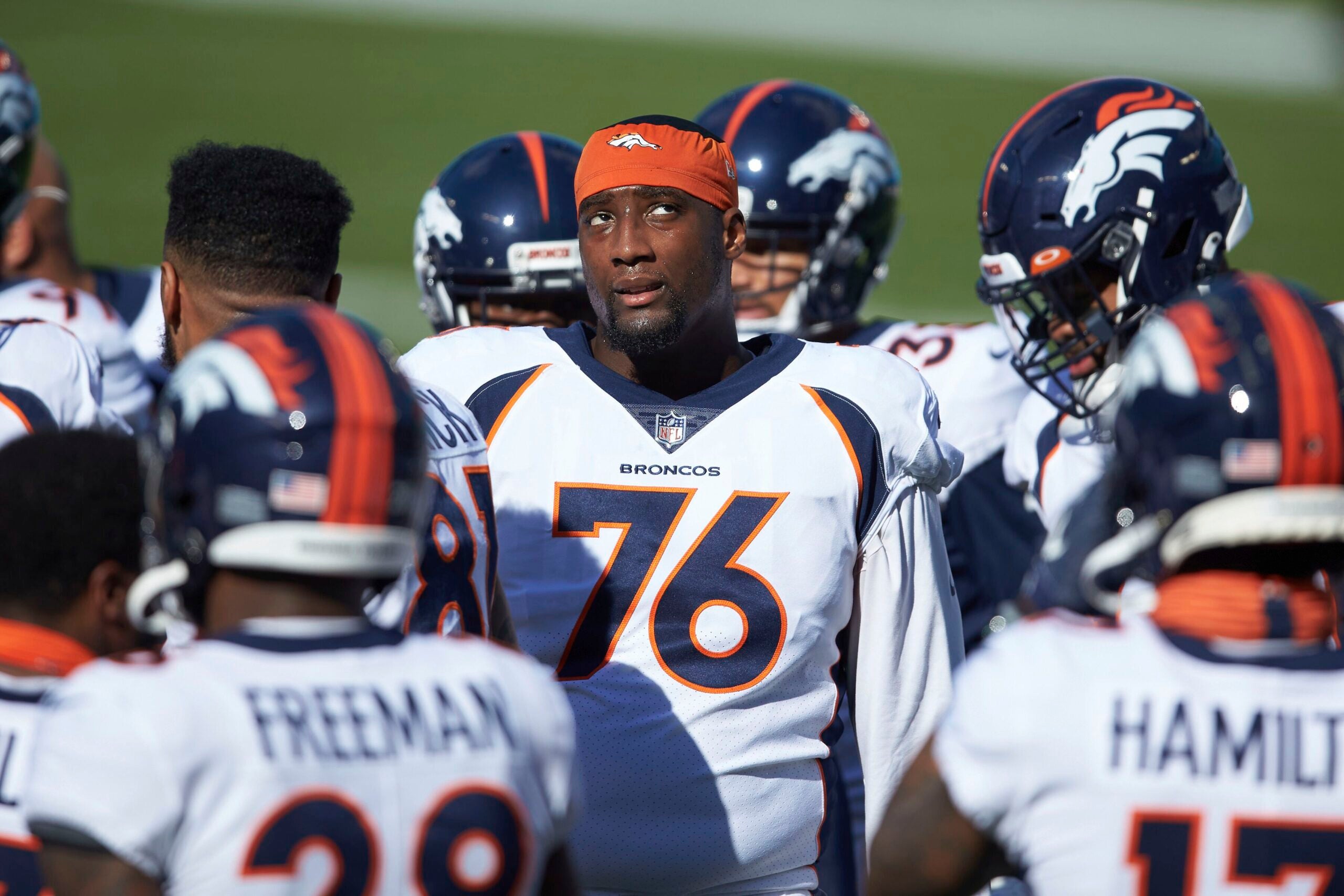
Rejoining the team
Sherée, who compares Anderson to a “shining star” because he’s so full of “positive energy,” said he spent days with his hoodie pulled up over his head.
“I told him he became like a dark cloud; he was wearing his hoodie like a dark cloud,” Sherée said. “It was difficult to see him in that way. It was difficult for me to see a different side of him. So yeah, I just wanted to heal him and help him heal.”
Throughout the recovery, Anderson heard from Belichick, who served as a lifeline to the team.
“At the start of camp, as a head coach, you have a hundred million things going on in your mind about the team, the season, etc.,” said Anderson. “I know he had all that going on, so I appreciated that he called me.
“I know my teammates weren’t aware of everything that was going on with me, so I was happy that at least he knew so I could be connected to the team, the guys.”
Anderson continued to study the playbook and work the mental side. When he was cleared medically, he was put back into service shortly before the start of the season.
“It’s good to have Calvin back out there,” Belichick said in the days before the season opener against Philadelphia. “He’s a young player, but he’s experienced enough to where he can handle a lot of things and pick things up quicker than a rookie would, even though he played for another team.
“He’s been able to, I would say, transition pretty well from an assignment standpoint, technique standpoint. We’ll see how it goes.”
Remarkably, without the benefit of a full training camp, he played every snap on offense against the defending NFC champions, as well as a couple on special teams. Coaches and teammates marveled.
“I definitely made sure to let him know how much I appreciated his effort Sunday, because that’s tough,” said David Andrews in the wake of the game. “Obviously, he’s a veteran player, but it’s really hard missing a training camp. You need a training camp. And a new system. So I really appreciated his effort.”
“Test of fortitude,” said offensive line coach Adrian Klemm. “There was a point in the game that he was gasping and he was tired and all that, but he pushed through it.”
Week 2 was a different matter. While he again played 100 percent of the snaps (a team-high 77, with 74 on offense and three on special teams), he was struggling to stay on the field. In his mind, it was the worst performance of his career.
“I know what I’m capable of and what the guys next to me are capable of,” he said. “Me not being at my best just made me feel … it was hard not to feel like you’re letting guys down.
“I was just fighting to keep myself moving. I really didn’t want to come out of the game at all. I told myself at some point, midway through the first quarter, ‘No matter what, I’m staying in this game,’ as long as I’m not inhibiting the team’s ability to win. It was a different focus.”
The truth was that he didn’t have his legs underneath him, not yet. Robbed of the conditioning that comes with training camp, he was rusty.
In the next three games, the Patriots did some shuffling, moving Mike Onwenu from guard to tackle and leaning on a variety of options at the other tackle spot. Anderson transitioned to a reserve role, playing fewer than 10 snaps a game over the next three weeks.
The hope was that he could continue to build some cardio and work his way back into the starting lineup. To that end, it appeared he would be good to go the first week of November against Washington.
A complication and a mental strain
It had been a good week for Anderson. He was taking practice reps with the first-team offense. Feeling healthy, there was real cause for optimism that he could become a consistent contributor and help stabilize the offensive line.
But toward the end of the week, Anderson was hit by a defensive teammate. Suddenly, his world was spinning again.
“I get hit in the chest in kind of an awkward way,” he said. “I didn’t think anything of it. We kept going.
“I started feeling like a chest pain that I had never felt before. I asked one of the trainers, ‘Hey, I’m having a little chest pain. I don’t know what it is. Do you guys have any thoughts about that?’
“So the doc came over and said, ‘Well, let’s just make sure everything is OK.’ They get on the sideline and I sat down, and my heartbeat wouldn’t stop. It just kept going … boom-boom-boom-boom-boom. I’m sitting there, at rest, and my heartbeat is just going.
“We ended up going and getting it checked out, and after a long period of time trying to figure out what it was, the cardiologist assessed it was a heart contusion from a hit. They didn’t really know what was causing it.
“But just imagine how rare this is. We get hit in the chest on every single play as an O-lineman. It just so happened that it was a combination of the position I was in and not seeing it, it caused temporary damage to my heart. Like a bruise.
“At that point, the level of frustration I had was just through the roof.”
Vazquez, the infectious disease specialist, said it was unlikely that the malaria made Anderson any more susceptible to a heart problem.
“Having heart conditions after a bout of malaria is rare,” said Vazquez, who did not treat Anderson. “It’s more likely to have complications in other organs before the heart.”
Anderson said a sizable part of his annoyance was that the health issues couldn’t be attacked via rehab. They were about sitting and waiting. Adding to his dissatisfaction was the nagging thought that he was continuing to let his teammates down.
“Embedded in the culture of offensive line play is accountability and sacrifice,” he said. “And so when you’re not able to be counted on, and when you are not able to sacrifice, to show your brothers that you’re there, it’s just really tough, man.
“You watch guys like David [Andrews], a great example of someone who, over the course of his career, has constantly been put in situations where he had to be counted on.
“It was hard, playing next to those guys and knowing how much they were sacrificing and not being able to do that also.’’
Sherée recalls the mental struggles being as difficult as the physical ones. One night, she awoke at 4 a.m. to find Anderson standing in front of the mirror, yelling at his reflection.
“ ‘They think it’s over? This [expletive] isn’t over yet! I worked my whole life to be here!’ I literally thought that he was going crazy,” Sherée said. “He was shouting at the mirror and saying, ‘This [expletive] ain’t over! I am Him! I am Him! I’m coming back!’ I was like, ‘Calvin, it’s 4 a.m. Calm down. Lay in the bed.’ ”
Anderson tried to fight, especially as he watched the offense struggle, but the Patriots placed him on injured reserve on Nov. 3, effectively ending his season. He had played five games, starting two.
“The conversations primarily started with trying to assess where I was in the recovery process,” he said. “I think we just tried to get a gauge of how long it would take to be back at 100 percent, to be able to give everything I had on the field.’’
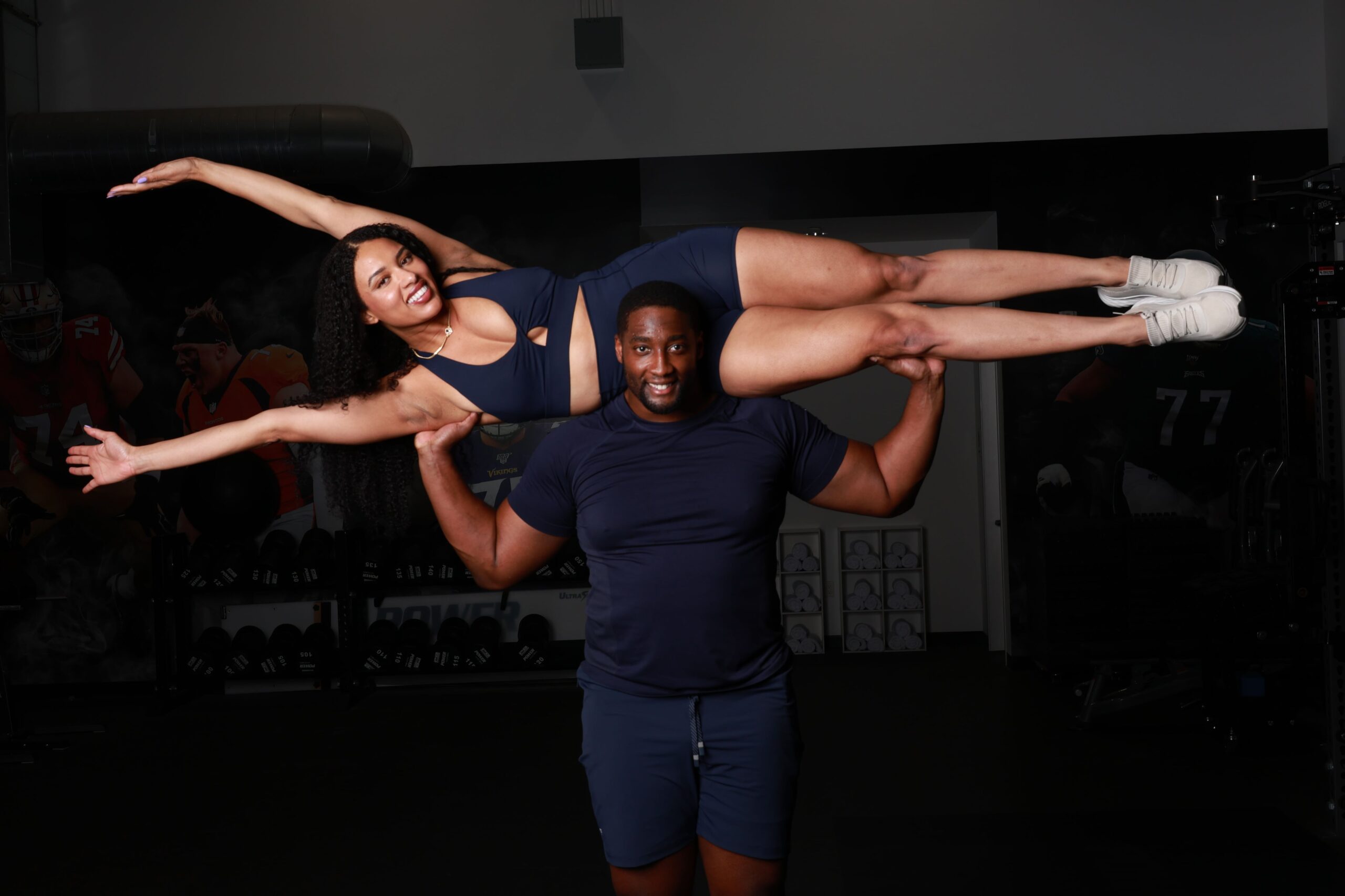
Carrying on, with scars
When Belichick and the Patriots parted ways in January, Anderson took to social media to offer a tribute, acknowledging that Belichick was the “first to call me when getting out of the hospital both times this year. I consider it an honor. 2024 season I will prove you right. Thank you legend.”
Now, after basically losing a year of his career, Anderson is determined to make up for lost time. He has been an active participant in the offseason program, showing up in Foxborough the first day and working with his teammates to prepare for the upcoming season.
He again has a chance to make an impact. The Patriots are in desperate need of offensive line depth — particularly at tackle — and a healthy Anderson would make a colossal difference in stabilizing things up front.
Anderson and his wife are not planning to travel overseas this summer, instead focusing on the Lanihun-Anderson Foundation, dedicated to promoting financial literacy for teens and young adults.
“We want to focus on financial literacy so we can close the gap in education,” Anderson said. “Because when kids aren’t able to focus on learning these skills in early development, they spend a lot of their older years working through the setbacks of not having garnered that info when they were young. And you spend all of your twenties trying to figure those things out. We want to help out with that.”
And with a new head coach and new coaching staff in place, no one is looking forward to training camp more than Anderson. The grind. The sweat. The tedium and drudgery of two-hour practices in pads in the heat of July and August.
Missing nearly a year of doing something you love — something you really love — will make you wistful for odd things, such as knocking the head off a defensive end.
“This is a new year, a new opportunity,” Anderson said. “And I’m looking forward to that.”
“When I think about approaching this year, I think about authentic expressions. I think about walking in truth and oneness with the expression of me, and who I am. Who I am includes the scars that come from the moments that I’ve had. The moments of weakness, the moments of defeat.
“I look forward to many things, but most of all, I look forward to authentically being Calvin Anderson.”

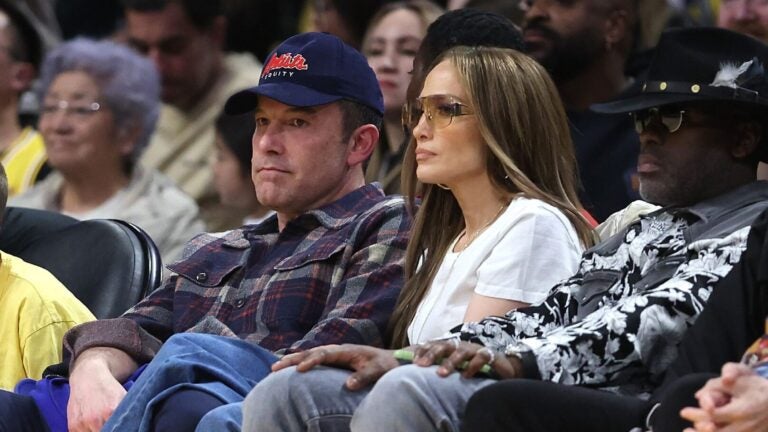



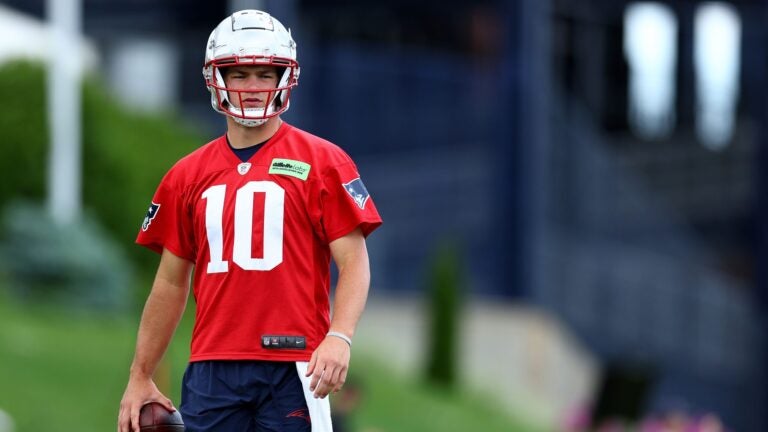

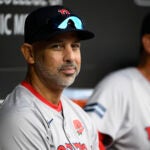
Conversation
This discussion has ended. Please join elsewhere on Boston.com